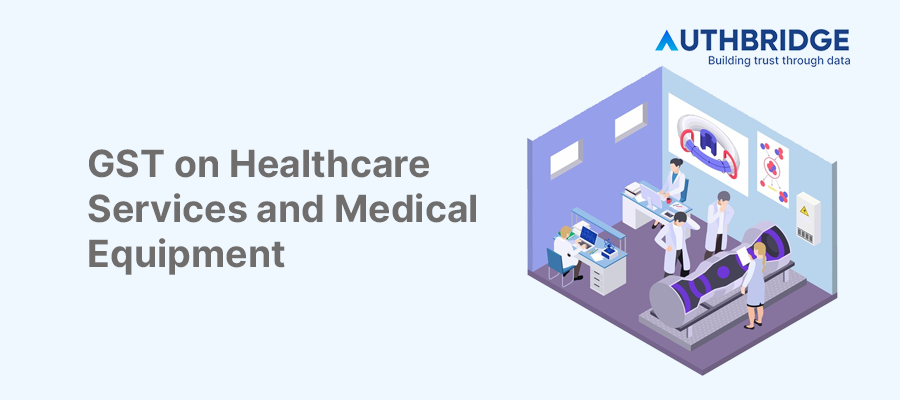GST And Its Impact On Healthcare Services And Medical Equipment

The Goods and Services Tax (GST) has significantly impacted various sectors, including healthcare, which is a crucial sector for the well-being of India's population. Understanding the GST implications on healthcare services and medical equipment is vital for consumers, healthcare providers, and businesses involved in this sector. This blog delves into the nuances of GST on healthcare services, medical fees, and medical equipment, providing a comprehensive overview.
GST on Healthcare Services
Healthcare services in India are generally exempt from GST, which includes services provided by a clinical establishment, an authorized medical practitioner, or paramedics. This exemption covers a broad spectrum of services, from diagnosis to treatment, and aims to make healthcare more accessible and affordable to the general public. However, there are exceptions where GST is applicable, particularly in services not directly related to healthcare, like cosmetic surgery, hair transplant services, and room rents exceeding ₹5,000 per day in hospitals without medical insurance.
GST on Medical Fees
When it comes to medical fees, the general principle under GST is the exemption of healthcare services. Consequently, consultations and treatments offered by doctors, surgeons, dentists, and other medical practitioners are exempt from GST. This exemption also extends to diagnostic services and transportation of patients. However, it's important to note that not all services related to healthcare enjoy this exemption. For instance, health check-up or screening services provided by corporate entities might attract GST.
GST on Medicines and Medical Supplies
The GST framework categorizes medicines and medical supplies into different tax slabs based on their necessity and usage. Essential drugs used for treating diseases like tuberculosis, malaria, and diabetes are taxed at a lower rate of 5% to make them more affordable. On the other hand, other medicines and medical supplies might fall under the 12% or 18% GST slab, depending on their classification. Notably, life-saving drugs and certain medical equipment are taxed at a concessional rate to ensure they remain accessible to those in need.
- Nil Rate: Blood and its by-products, along with all types of contraceptives, are exempt from GST, acknowledging their importance in healthcare.
- 5% Rate: This slab includes life-saving drugs such as vaccines and medicines for critical diseases like tuberculosis, AIDS, and diabetes. The concessional rate aims to support public health initiatives.
- 12% and 18% Rates: Specific medicines and medical supplies are taxed at these rates, with nicotine gums falling under the 18% category, indicating a differentiation based on the essential nature of the product.
- No Application of 28% Rate: It is noteworthy that no medicines or medical supplies are subjected to the highest GST slab of 28%, highlighting the government's intention to keep healthcare services and products within an affordable range for the general population.
Conclusion
The GST regime in India is designed to recognize the critical nature of healthcare services and medical supplies, providing exemptions and concessional rates for essential services and products. While healthcare services are largely exempt, practitioners and businesses must understand the nuances of GST applicability to ensure compliance and optimize their operations within the legal framework. The differential tax rates on medicines and medical supplies further reflect the government's commitment to making healthcare accessible and affordable. As the GST system evolves, staying informed about these regulations will be key for all stakeholders in the healthcare sector.
Category

Abhinandan Banerjee
(Associate Manager - Marketing)
Abhinandan is a dynamic Product and Content Marketer, boasting over seven years of experience in crafting impactful marketing strategies across diverse environments. Known for his strategic insights, he propels digital growth and boosts brand visibility by transforming complex ideas into compelling content that inspires action.



